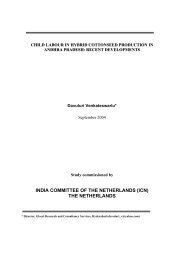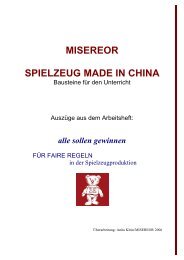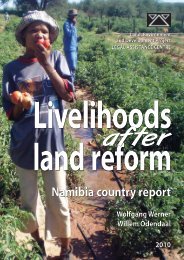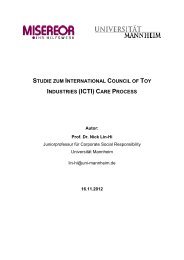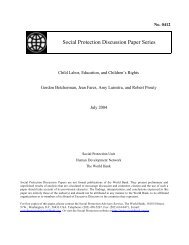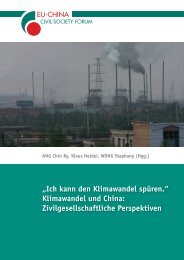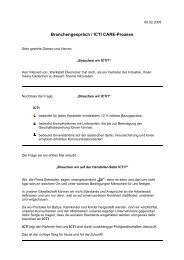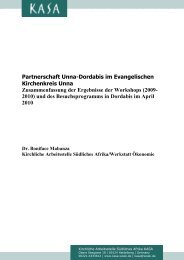“You'll Be Fired if You Refuse†- Human Rights Watch
“You'll Be Fired if You Refuse†- Human Rights Watch
“You'll Be Fired if You Refuse†- Human Rights Watch
Create successful ePaper yourself
Turn your PDF publications into a flip-book with our unique Google optimized e-Paper software.
NFCA first began active operations that management purchased ambulances to get injured<br />
workers to the hospital in Kitwe, some 30 kilometers away. 154<br />
At Sino Metals, the CNMC-owned processing plant in Chambishi, workers told <strong>Human</strong> <strong>Rights</strong><br />
<strong>Watch</strong> that there was only a single full-time safety officer for the almost 400 employees. And<br />
several said that even his hiring showed just how little emphasis Sino Metals places on<br />
safety, as the person was formerly a driver, without any spec<strong>if</strong>ic training in the country’s<br />
safety regulations. 155 One mechanic there said: “We have plenty of people trained to perform<br />
these jobs in Zambia, yet this is who they hire. They don’t take [safety] seriously. Improving<br />
safety is even more important than the salary issue, it has to be changed.” 156<br />
China Non-Ferrous Metals Mining Corporation took over China Luanshya Mine (CLM) in<br />
2009, after it had lay dormant for just under a year. Several miners, in particular those who<br />
work underground, told <strong>Human</strong> <strong>Rights</strong> <strong>Watch</strong> that there has been a real change in the<br />
safety officers’ authority and role—reflecting the overall decline in safety with the Chinese<br />
owner. A miner who works with explosives to blast new areas of mining explained:<br />
A real change [with the Chinese owner] has been the enforcement of safety<br />
aspects. In the past, a safety officer would say, “<strong>You</strong> can’t work here<br />
because of whatever regulation,” and it would be followed. But now, safety<br />
officers can’t stop operations. They always have to check with management.<br />
Management decides, not the safety officer, which is a problem. We’ve<br />
seen more accidents as a result. We have an average of about three<br />
accidents a week; last week we had six! For four years, back under [Swissbased]<br />
Enya, we were the safest mine in the country. We used to go a<br />
month with maybe one accident. But now it has gone way up.<br />
Why? There is way too much pressure from the Chinese that permeates<br />
through the Zambian managers as well. They care about always pushing,<br />
pushing to get the most production, and that has made us less safe….<br />
Second, the Chinese never slow down or look deeper at accidents when<br />
they happen. Once when I raised this with a Chinese manager he said,<br />
“Why are we talking about accidents when there are two or three in a week?<br />
That’s nothing.” They made clear that in China accidents are far more<br />
154 <strong>Human</strong> <strong>Rights</strong> <strong>Watch</strong> interview with NFCA safety officer, Chambishi, November 11, 2010.<br />
155 <strong>Human</strong> <strong>Rights</strong> <strong>Watch</strong> interviews with miner B at the SX/EW plant, Sino Metals, Kitwe, November 8, 2010; with mechanic A<br />
at Sino Metals, Kitwe, November 8, 2010; and with copper sampler A at Sino Metals, Kitwe, November 8, 2010.<br />
156 <strong>Human</strong> <strong>Rights</strong> <strong>Watch</strong> interview with mechanic A at Sino Metals, Kitwe, November 8, 2010.<br />
“YOU’LL BE FIRED IF YOU REFUSE” 52





